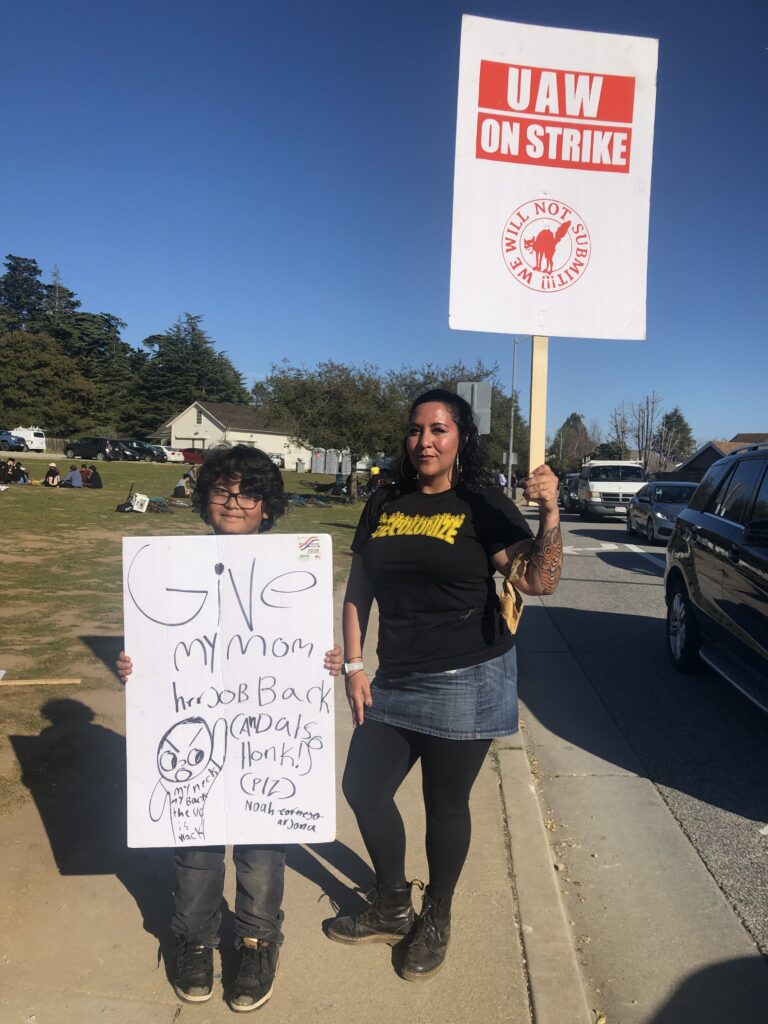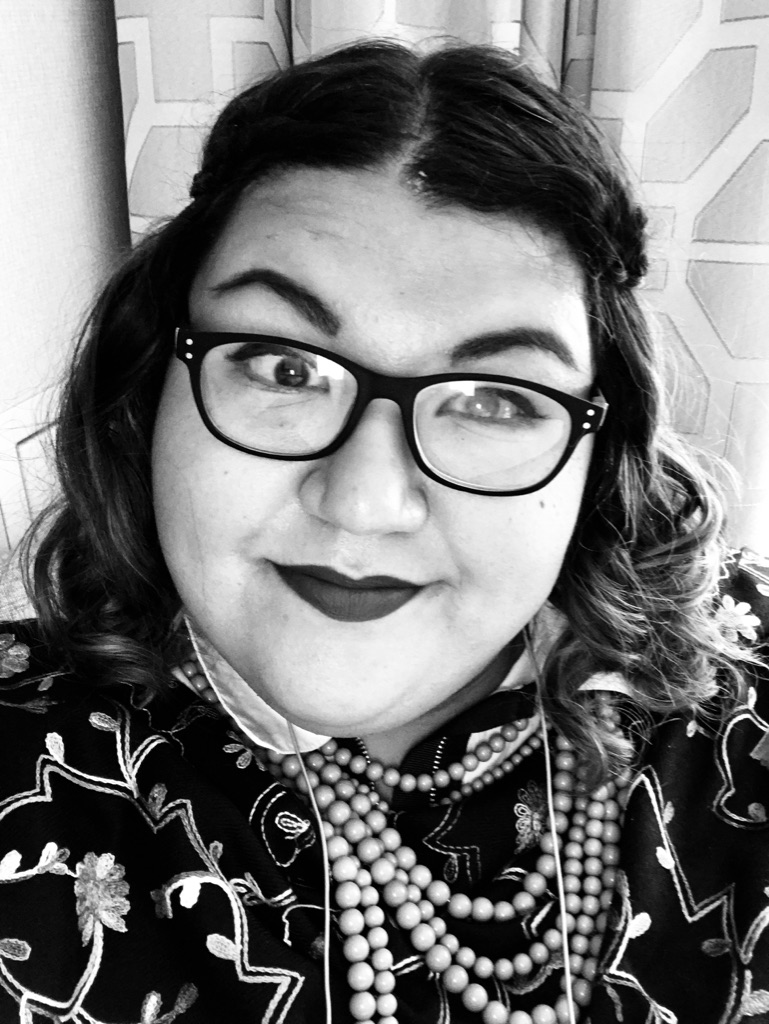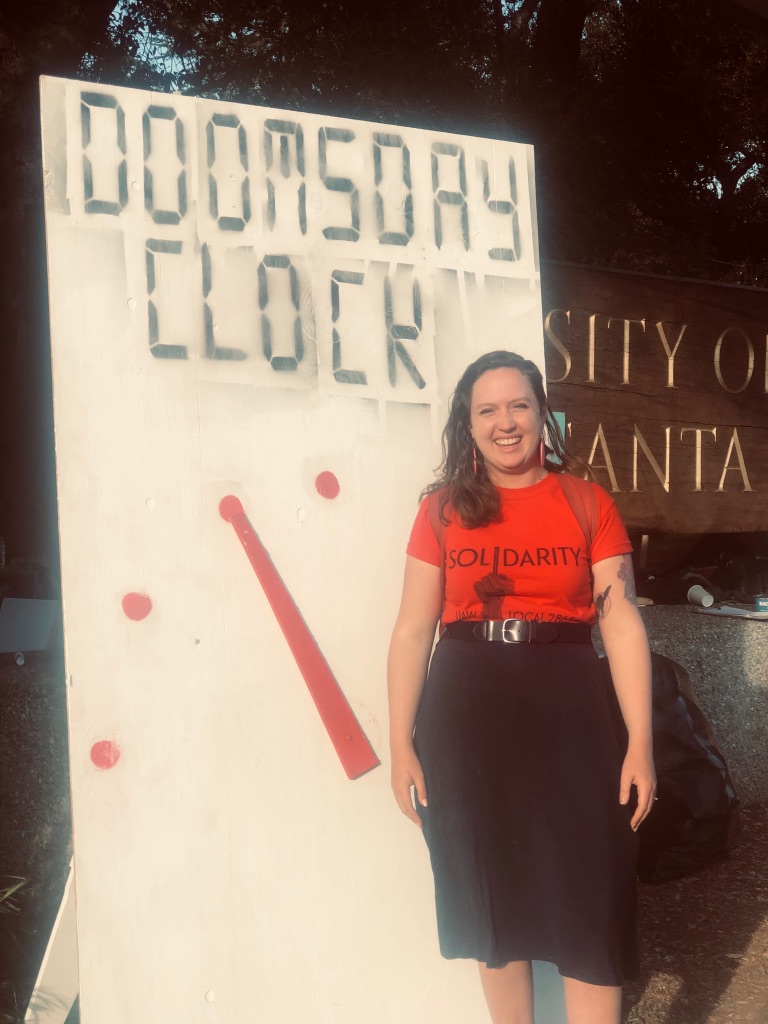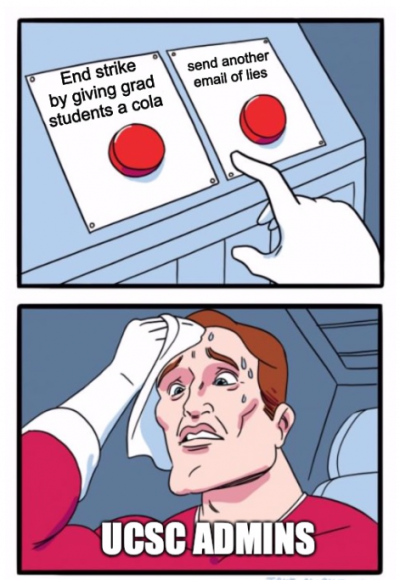#COLA Now:
A Conversation with UCSC Wildcat Strikers
The #COLA strike has been a rollercoaster: it involves a struggle for union democracy, mass firing and loss of healthcare during a pandemic, inspiring coalitions with local workers and students, standoffs with police in riot gear, a *fire* social media campaign that helped spread the strike across the whole state system, and the launch of Strike University and the FUC popular education / speaker series across the UC. They share the story in our conversation. They also reflect on what the strike, and their organizing broadly, has meant for how they understand themselves as teachers and scholars.
Call for a UC Boycott!
A CALL OF CONSCIENCE NOT TO SPEAK AT ANY UNIVERSITY OF CALIFORNIA CAMPUS UNTIL THE ADMINISTRATION REINSTATES ALL GRAD STUDENTS FIRED FOR STRIKE ACTIVITIES
Learn + Sign HERE
Our July 2020 podcast features the scholar-teacher-organizers from the University of California at Santa Cruz. Brenda Arjona, Bristol Cave-Lacoste, and Priscilla Martinez are graduate workers who, with their colleagues at UCSC, have been on a wildcat strike for a cost of living adjustment (COLA) since December 2019. They are fighting to reduce the overwhelming rent burden, as well as food insecurity and barriers to healthcare, that they and other precarious workers in Santa Cruz have had to endure — while the UC decided to spend hundreds of thousands of dollars on military style policing and surveillance of striking grads. (Fun fact: UCSC claims in its official motto to be the “Original Authority on Questioning Authority”).
^Click to see the collection of #COLA4All memes.

^UCSC graduate wildcat strikers stand on a tree-lined sidewalk with black signs that spell out in white letters THE RENT IS TOO DAMN HIGH
about our guest/s

^Brenda Arjona and her child pose with protest signs. The sign on the top right reads “UAW on Strike” and the sign on the bottom left reads “Give my mom her job back (and also honk).” It also has a picture of a person wearing a t-shirt that says, “My Neck! My Back! The UC is wack!” We agree.
Bristol Cave-LaCoste is a History Ph.D. with a designated emphasis in Latin American + Latino Studies. She is a historian of sexuality focused on immigration law and prostitution in the late 19th early 20th century U.S. Her dissertation looks at forms of policing sexual non-conformity at local and federal levels of state, and how women resisted limitations on their movements and sexual lives. She also teaches a queer history class that explores how queer history gets preserved and circulated in archives and public history spaces. She wants to give a big shout-out to the StrikeU and FUC series organizers across the UC, who have helped so many people analyze their contexts and organize. In her roles as teacher, scholar, and organizer, Bristol believes history can and must mobilize us to create change and often tells her students: if history isn’t making you emotional, you haven’t found the right history yet.

^Priscilla Martinez, UCSC wildcat striker and public history scholar extraordinare, looks sharp and smiles for her headshot.
Brenda Arjona is a third year PhD student in the Archaeology track of the Anthropology department at UCSC. She is also one of the fired wildcats! Her multidisciplinary research centers BIPOC voices, while incorporating queer theory and feminist method, to work toward a decolonial archaeology. As a California historical archaeologist, she is committed to practicing her work in a way that refuses to reproduce — and instead directly challenges — Eurocentric and colonialist norms in research, methodology, and theoretical frameworks.

^Bristol Cave-LaCoste stands in front of a “Doomsday Clock” created during the graduate wildcat strike
Priscilla Martinez is a seventh year Ph.D. candidate in History at UCSC, with an emphasis in Latin American + Latino Studies and a specialty in oral history. She is also one of the fired wildcats! Her work is anchored in nineteenth and early twentieth U.S.-Mexico borderlands history, and her dissertation explores the intersections of indigeneity, mestizaje, nationalism, and citizenship in and around the Mexican Pacific. Her prowess as a public scholar is remarkable, and particularly notable in the three podcasts she hosts. These include COLA-fornia Dreaming (dedicated to the voices behind the graduate student wildcat strike at UCSC), the co-hosted We Should Be Writing (following two Xicana best friends as they process often problematic pop culture obsessions through the lens of their academic training), and — in her role as resident scholar and historian for Tucson’s Chinese Cultural Center — Tucson Speaks! (featuring oral histories of the city’s Chinese and Chinese Mexican communities). Unsurprisingly, she has a great social media game.
